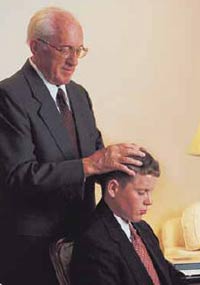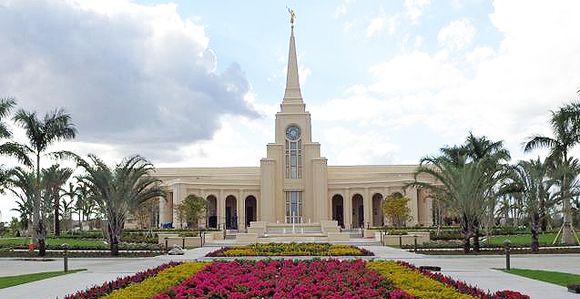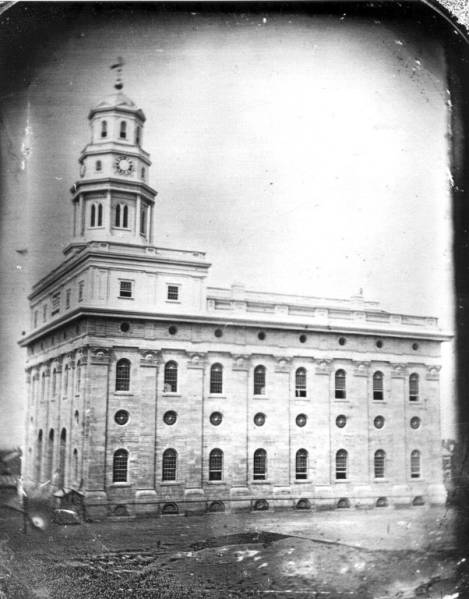To accompany your Come Follow Me study for October 27 to November 2
In addition to reading this section you will want to read:
- Chapter 48: Doctrine and Covenants 124 (churchofjesuschrist.org)
- Joseph Smith’s Revelations, Doctrine and Covenants 124 (churchofjesuschrist.org)
- Saints, 1:399–427;
- “Organizing the Church in Nauvoo,” Revelations in Context, 264–71.
- “Nauvoo Temple,” in Church History Topics athttps://www.churchofjesuschrist.org/study/history/topics/nauvoo-temple?lang=eng
- “Patriarchal Blessings,” in Church History Topics at https://www.churchofjesuschrist.org/study/history/topics/patriarchal-blessings?lang=eng
- “Patriarchal Blessings,” in Gospel Topics at https://www.churchofjesuschrist.org/study/manual/gospel-topics/patriarchal-blessings?lang=eng
You may also enjoy the following video:
If you would like a Kahoot game related to this section which you could use with your family or your class, or which you could play or learn from individually by converting it to a “Challenge” version, click here: https://create.kahoot.it/share/doctrine-and-covenants-124/07f59b42-56a2-4188-aefd-7922ecf8a06b. To use it with a group, after clicking on this link, you will need to log into Kahoot, creating a free account if you have not done so previously, then click on the blue “Host Live” button or the gray “Assign” button, depending on how you wish to use the Kahoot. Some of the Kahoot questions may presuppose that the player has read through the suggested answers to the following Points to Ponder and at least has browsed the Institute student manual as well.
Points to Ponder in Doctrine and Covenants 124
1. Not counting D&C 121-123, which were excerpts from a letter written in Liberty Jail, D&C 124 is the first section produced in 2 1/2 years. How do you account for such a gap?
2. What do we know about the “solemn proclamation” which the Lord commanded in D&C 124 be written to the kings and rulers of the earth?
3. How does a “proclamation” differ from a “declaration” or doctrinal exposition? What is the most recent proclamation the Church has issued?
4. What spiritual value was the hotel mentioned in 124 to have?

5. What does the Lord mean by his promise in 124:28 to restore “the fulness of the priesthood,” in view of the fact that John the Baptist, Peter, James, John, and Elijah had all already come to restore priesthood authority?
6. Why was Hyrum Smith released in 124 from being a counselor to Joseph Smith?

7. Should we consider it a responsibility of just an optional privilege to receive a patriarchal blessing? Why?

8. What is the significance of the designation of membership in a specific tribe of Israel in one’s patriarchal blessing?

9. If a young man’s patriarchal blessing does not specify that he is to serve a mission, what should he do?

10. What can we conclude if not all blessings promised an apparently faithful member are fulfilled? And explain your answer.
a. He wasn’t so faithful after all.
b. The patriarch must not have been inspired.
c. The blessings can still be counted on being granted in the life to come.
d. The blessings were granted, but in a way different from what the recipient expected.
11. D&C 124 speaks favorably of such men as John C. Bennett, William Law, Robert D. Foster, and William Marks, who later became enemies of Joseph Smith. Why would an inspired prophet have called them, if they were going to turn on him later?
12. What interesting information do we learn in this section about the condition of David Patten, Edward Partridge, and Joseph Smith, Sr., all of whom were then deceased?
13. What can we learn in this section about the purposes of the temple? Which verse tells us the most on the subject?

14. We often quote Nephi’s faithful response when his father asked him to go back for the plates: “The Lord giveth no commandments unto the children of men, save he shall prepare a way for them that they may accomplish the thing which he commandeth them.” (1 Nephi 3:7). D&C 124 tells us that isn’t always true. Why not? What will He do if He doesn’t prepare the way for the accomplishment of a commandment?

15. What does the Lord mean when he accuses Almon Babbitt of setting up a “golden calf” for the worship of the people? (124:84)

16. What other passages in D&C 124 did you find especially interesting or inspiring?
Possible Answers to Points to Ponder in Doctrine and Covenants 124
1. Not counting D&C 121-123, which were excerpts from a letter written in Liberty Jail, D&C 124 is the first section produced in 2 1/2 years. How do you account for such a gap?
For one thing, Joseph Smith has been busy escaping from prison, acquiring land for Nauvoo, resettling the Saints there, etc. An even more significant reason seems to be that once many of the foundation documents of this dispensation had been revealed and published, the Prophet seemed to have been less concerned with recording and publishing all of the Lord’s communications to him. Or perhaps better said, he felt it less necessary to announce it all as revelation. The following graph may be instructive:

The blue shows less frequent sections of the Doctrine and Covenants as the years passed, but a greatly increased quantity of material in Teachings of the Prophet Joseph Smith. Wilford Woodruff indicated that a prophet has some volition in how he expresses divine revelations. He suggested it wasn’t always necessary to say “Thus saith the Lord,” when teaching revealed truths. Some of the greatest teachings of Joseph Smith are found in his later sermons, not in the Doctrine and Covenants, as great as that volume of scripture is.
2. What do we know about the “solemn proclamation” which the Lord commanded in D&C 124 be written to the kings and rulers of the earth?
It was never completed during Joseph Smith’s lifetime but was issued by the Quorum of the Twelve Apostles in 1845 and can be read at https://contentdm.lib.byu.edu/digital/collection/NCMP1820-1846/id/2818/
3. How does a “proclamation” differ from a “declaration” or doctrinal exposition? What is the most recent proclamation the Church has issued?
See “How Rare a Proclamation: A Look at Today’s and the 5 Previous Proclamations in Church History” at https://www.churchofjesuschrist.org/church/news/how-rare-a-proclamation-a-look-at-todays-and-the-5-previous-proclamations-in-church-history?lang=eng for a discussion of the subject.
The latest proclamation was issued by President Russell M. Nelson at the April 2020 general conference and can be read at https://newsroom.churchofjesuschrist.org/multimedia/file/restoration-proclamation-2020-april.pdf
4. What spiritual value was the hotel mentioned in 124 to have?
See 124:60. It was to entice tourists to Nauvoo, who while there might learn about the gospel.
5. What does the Lord mean by his promise in 124:28 to restore “the fulness of the priesthood,” in view of the fact that John the Baptist, Peter, James, John, and Elijah had all already come to restore priesthood authority?
He means that the “fulness of the priesthood” is to be communicated to worthy members individually in the temple, as they receive the endowment and sealing blessings.
6. Why was Hyrum Smith released in 124 from being a counselor to Joseph Smith?
So he could become assistant president of the Church, an even higher position, taking Oliver Cowdery’s place, as well as become Patriarch to the Church. Neither position is filled in the Church today.
7. Should we consider it a responsibility of just an optional privilege to receive a patriarchal blessing? Why?
The Church’s article on “Patriarchal Blessings” in Gospel Topics states: “Every worthy, baptized member is entitled to and should receive a patriarchal blessing, which provides inspired direction from the Lord.” The Lord wants His children to have all the inspired counsel and guidance they can get, whether from good parents, priesthood leaders, the patriarch, or directly from heaven.
8. What is the significance of the designation of membership in a specific tribe of Israel in one’s patriarchal blessing?
The Lord honored ancient Jacob, as he did Abraham and Isaac before him, by indicating that all who accepted the gospel and would be heirs of its blessings from that time on would be considered members of his posterity. If they were not literally his descendants, they would be “adopted.” It is thus essential that each of us be of the house of Israel. It is much less consequential—perhaps totally inconsequential–to which tribe we are belong. Nothing in the scriptures indicates that those of Ephraim will have any advantage or disadvantage compared to those of Judah, Reuben, or Manasseh, for example. If a patriarch is prompted to designate a member as being of some tribe other than Ephraim, presumably there is some literal genealogical connection. If he indicates he is of the tribe of Ephraim, it is unclear and unimportant whether the member is so by literal descent or by adoption. As the birthright among Jacob’s sons ended up with Ephraim, it appears that those not literally and measurably of some other tribe are designated to be of Ephraim, by adoption. And as the Church’s article on “Patriarchal Blessings” indicates, “Because each of us has many bloodlines running in us, two members of the same family may be declared as being of different tribes in Israel.”
9. If a young man’s patriarchal blessing does not specify that he is to serve a mission, what should he do?
He doesn’t need a patriarchal blessing to tell him that every worthy and able young man should serve a mission, as multiple prophets have declared. He should go ahead and prepare for missionary service just as energetically as though it had been a major focus of his patriarchal blessing. Perhaps the omission of the subject from the blessing was the Lord’s way of telling the young man that it was taken for granted that one so able and faithful would already be committed to missionary service.
10. What can we conclude if not all blessings promised an apparently faithful member are fulfilled? And explain your answer.
a. He wasn’t so faithful after all.
b. The patriarch must not have been inspired.
c. The blessings can still be counted on being granted in the life to come.
d. The blessings were granted, but in a way different from what the recipient expected.
It is, of course, no one else’s duty to pass judgment on why someone else’s blessing didn’t seem to be fulfilled. Theoretically, it could have been “a,” “c,” or “d.” I am reluctant to pick “b,” as I feel confident that if the Lord has a patriarch in service who says things he shouldn’t have, the Lord will find a way to have the patriarch released and/or will find a way to fulfill in one way or another whatever the patriarch may have misspoken. As 124:93 assures us, “whoever he curses shall be cursed; and … whatsoever he shall bind on earth shall be bound in heaven.”
I think it is most important to recognize that, as the Church’s article on “Patriarchal Blessings” reminds us: “The recipient of the blessing should not assume that everything mentioned in it will be fulfilled in this life. A patriarchal blessing is eternal, and its promises may extend into the eternities. If one is worthy, all promises will be fulfilled in the Lord’s due time. Those promises and blessings that are not realized in this life will be fulfilled in the next.”
11. D&C 124 speaks favorably of such men as John C. Bennett, William Law, Robert D. Foster, and William Marks, who later became enemies of Joseph Smith. Why would an inspired prophet have called them, if they were going to turn on him later?
One could obviously ask the same question about Jesus’ call of Judas. The answer may be that the Lord blesses or curses men according to what they are then doing, not according to what He may know they will do in the future. At this time, those four men were all deserving of the calls they held. A further reason may be that God knew that Joseph Smith needed to go through the experience of betrayal at the hands of former friends, as did the Savior.
12. What interesting information do we learn in this section about the condition of David Patten, Edward Partridge, and Joseph Smith, Sr., all of whom were then deceased?
The Lord tells Joseph that David Patten and Edward Partridge were now with Him at that time. He further tells Joseph that his father, Joseph Smith, Sr., was seated with Abraham at his right hand, was blessed and holy, and belonged to the Lord. (D&C 124:19.) We understand there is a certain symbolism in these statements and that Joseph’s dad is not permanently seated. Nor are those in God’s “presence” necessarily there geographically. As the Lord said in D&C 38:2, “all things are present before mine eyes,” notwithstanding the fact that God has His abode and we may have another at any given time.
13. What can we learn in this section about the purposes of the temple? Which verse tells us the most on the subject?
Probably 124:39 has the most to say. From it we learn that temple ceremonies include baptisms for the dead and washings and anoingings as part of the “endowment” the Lord had in store for His saints. We learn also that it is a place of revelation and communication of the Lord’s laws, or statutes, as well as a place of “sacrifice.”
We additionally learn in 124:27 that the temple is a place wherein the Lord Himself “dwells.”
124:28 tells us that the “fulness of the priesthood” is conveyed therein.
124:41 states that temple ceremonies include things kept hid from before the foundation of the world.
124:55 suggests that a major purpose for the building of the temple was to prove the faithfulness of the Saints, that by showing themselves faithful they might be crowned “with honor, immortality, and eternal life.”
14. We often quote Nephi’s faithful response when his father asked him to go back for the plates: “The Lord giveth no commandments unto the children of men, save he shall prepare a way for them that they may accomplish the thing which he commandeth them.” (1 Nephi 3:7). D&C 124 tells us that isn’t always true. Why not? What will He do if He doesn’t prepare the way for the accomplishment of a commandment?
See D&C 124:49. The Lord allows agency to the wicked to thwart His work on occasion. On such occasions, he may choose to rescind the commandment rather than miraculously provide for its fulfillment.
15. What does the Lord mean when he accuses Almon Babbitt of setting up a “golden calf” for the worship of the people? (124:84)
Just as Aaron anciently provoked the Lord to anger by making a literal golden calf for the Israelites to worship instead of Him, so was Almon Babbitt repeatedly guilty of “aspiring to establish his counsel instead of … that of the Presidency” of the Church. For example, according to the Doctrine and Covenants Reference Companion, “After marching with Zion’s Camp in 1834 and being ordained in 1835 to the First Quorum of the Seventy, Babbitt was rebuked by the Kirtland high council for “not keeping the Word of Wisdom; for stating the Book of Mormon was not essential to our salvation, and that we have no articles of faith except the Bible” (Smith, 2:252). In December 1835 he was charged by Joseph Smith with “traducing my character” (2:346). In 1838 he led a company of Canadian Saints to Missouri contrary to counsel (Smith, 3:62). And in 1840 he was reprimanded for encouraging Latter-day Saints to settle in Kirtland rather than in Nauvoo (Smith, 4:166)…. At the October general conference of 1841, Babbitt was disfellowshipped for “counteracting the efforts of the presidency to gather the Saints” (Smith, 4:424). Upon moving from Kirtland to Illinois in 1843, he was restored to full fellowship and appointed to be the presiding elder of the branch at Ramus, Illinois. In May 1844 he was called on a mission to France but did not fulfill the call.” Babbitt did go West with the Saints and held various civic positions. But regrettably, he will be longest remembered for this passage in the Doctrine and Covenants highlighting his reluctance to follow the counsel of the Presidency of the Church.
16. What other passages in D&C 124 did you find especially interesting or inspiring?
Your choice. Mine might include:
124:86: Faithful Latter-day Saints are allowed to continue in the spirit world the work they were involved in on earth.
124:16-17 and 97-103, wherein great blessings are promised to John C. Bennett, Sidney Rigdon, and William Law, provided they were humble and receptive of counsel. Tragically, all three succumbed to the temptation of pride, and Bennett and Law fell so low as to be complicit in the murder of the Prophet. What a testimony to the importance of humility!
